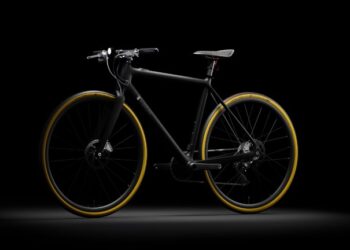In the ever-evolving landscape of personal computing, choosing the right laptop can significantly impact productivity and user experience. With numerous manufacturers pushing the boundaries of technology, identifying the best PC brand laptop requires an evaluation of various factors like performance, design, support, and value for money.
Leading PC Brands in the Laptop Market
A few brands consistently emerge as leaders in the laptop industry. Each has its distinct offerings that cater to different consumer needs.
1. Dell
Dell has cultivated a reputation for producing reliable and versatile laptops. Its Inspiron and XPS series are especially popular among both casual users and professionals.
-
Pros:
- Wide range of options catering to different user needs
- High build quality and durability
- Excellent customer support
- Cons:
- Some models can be pricey
- Bloatware can be an issue on certain devices
2. HP
Hewlett-Packard (HP) has a long-standing reputation in the laptop market. Their Pavilion and Spectre lines are particularly well-received for their balance of performance and aesthetics.
-
Pros:
- Attractive designs and premium build quality
- Strong performance for the price
- Good battery life on most models
- Cons:
- Customer service can vary in quality
- Some models may experience heating issues
3. Lenovo
Lenovo, renowned for its ThinkPad series, focuses on business-oriented laptops that excel in functionality and reliability.
-
Pros:
- Exceptional keyboard quality, great for typing
- Long battery life
- Robust build with security features for business users
- Cons:
- Design may not appeal to everyone
- Some consumer models lack premium features
4. Asus
Asus is recognized for its innovative features and gaming laptops. The ROG (Republic of Gamers) series and VivoBook line cater to different ends of the spectrum.
-
Pros:
- Cutting-edge technology and gaming performance
- High-quality displays with vibrant colors
- Generally competitive pricing
- Cons:
- Customer support experiences can be hit-or-miss
- Some models can be bulkier than expected
5. Acer
Acer aims to provide budget-friendly options without sacrificing essential features. Their Aspire and Predator series appeal to casual and gaming users alike.
-
Pros:
- Affordable pricing with decent performance
- Variety of models available for different needs
- Lightweight options available
ADVERTISEMENT - Cons:
- Build quality may not be as high-end
- Customer service reputation is mixed
Factors to Consider When Choosing a Laptop
Selecting the best laptop for your needs involves careful consideration of several factors:
Performance and Specs
- Processor: Look for Intel Core i5 or i7, or AMD Ryzen 5 or 7 for optimal performance.
- RAM: A minimum of 8GB is advisable, with 16GB being ideal for heavy multitasking.
- Storage: SSDs are preferred for speed; consider at least 256GB for general use.
Design and Build Quality
- Portability: Consider weight and dimensions, especially if you plan to travel frequently.
- Durability: Look for high-quality materials if you need a laptop that can withstand rough handling.
Battery Life
- Aim for a laptop with at least 8 hours of battery life if you plan to work on the go.
Support and Warranty
- Check the manufacturer’s warranty options and the reputation for customer service to ensure peace of mind.
Price Range
- Establish a budget, but also weigh the importance of features against the cost. Sometimes, spending a bit more can lead to better longevity and satisfaction.
Final Thoughts on Selecting the Best PC Laptop
Ultimately, the "best" PC brand laptop can differ based on individual needs and preferences. Brands like Dell, HP, Lenovo, Asus, and Acer each have unique strengths that appeal to various users. Whether you need a high-performance machine for gaming, a reliable laptop for work, or a portable device for school, these brands offer compelling choices that cater to diverse requirements.





